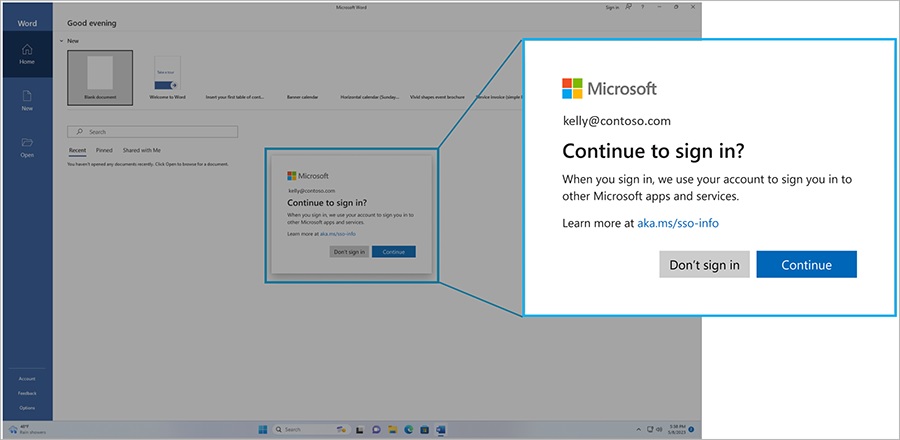Windows is changing the way apps can access your Microsoft account. Currently, when you sign in to Windows 11 or 10 with your Microsoft account, most apps automatically use that Microsoft account for in-app sign-in. The tech giant plans to change this behaviour by allowing you to decline access to Microsoft accounts in installed apps.
As mentioned in a blog post from November 2023, Microsoft is adapting Windows to align with the European Union’s Digital Markets Act (DMA). Starting in early 2024, European Economic Area (EEA) users will notice changes when logging into apps on Windows 10 and Windows 11.
So what’s changing? When you, as a user based in Europe, log into Windows and then open an app, a new notification will pop up. This notification will ask if you want to use the same sign-in credentials for the app as you did for Windows.

As shown in the above screenshot, you can either allow access to your Microsoft account or deny it and then choose another account or use the app without signing in. This pop-up applies the first time you open an app that allows sign-in with a personal Microsoft account or an Entra ID following your Windows sign-in.
Once you agree to use the same credentials, this notification won’t reappear in most cases, but there are certain exceptions.
While the pop-up will show once per device for each user, it may appear only if you do not sign into Windows for 90 days or re-add a cloud account to Windows.
If you decide not to use your Windows sign-in credentials for the app, you can enter different ones. If the app allows, you can also choose to use it without signing in at all.
The feature is arriving in January.
Microsoft is testing the feature in Windows 11 Build 22631.2787 or newer in the Release Preview Channel, and the changes are expected to ship as part of an optional update in January or February ahead of a broader rollout in March.
To test these changes, you must sign in to Windows using a Microsoft account or Entra ID and then open an app that supports these sign-in methods.
Your device’s region must be set to an EEA country to experience this new sign-in approach.
It is also worth noting that both Windows 10 and Windows 11 will feature this change starting in January or February 2024. Windows Server versions are not affected.
It is possible these changes could ship with the Windows 11 Moment 5 update in the last week of February or March.
With the Moment 5 update, Microsoft also plans to add new Windows Update recovery features. Other EY-related changes include the ability to uninstall Microsoft Edge and change the search engine of Windows Search.
The post Windows 11 is relaxing Microsoft account auto-sign in apps, but only in Europe appeared first on Windows Latest
